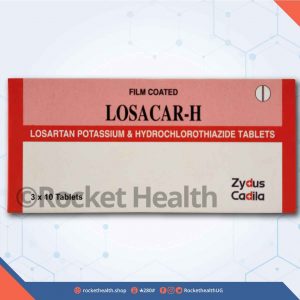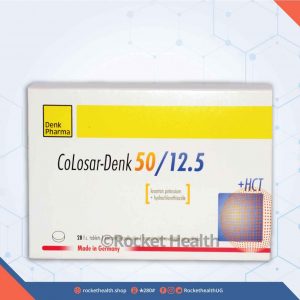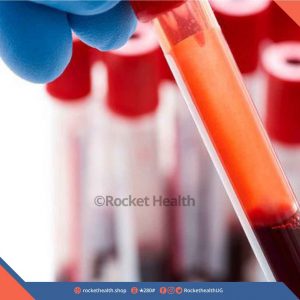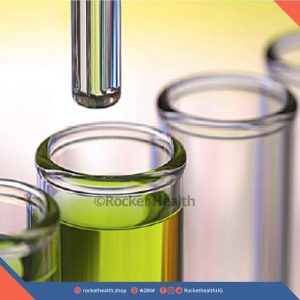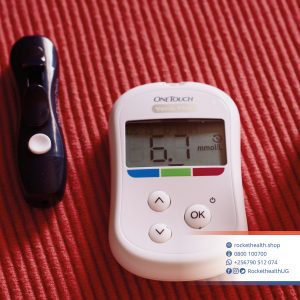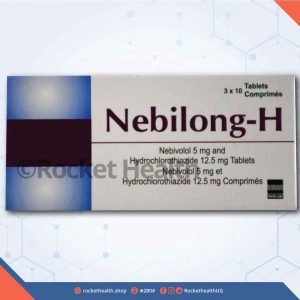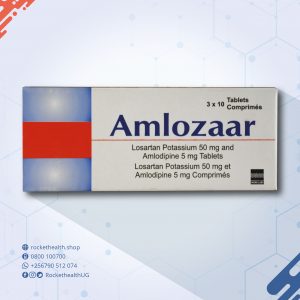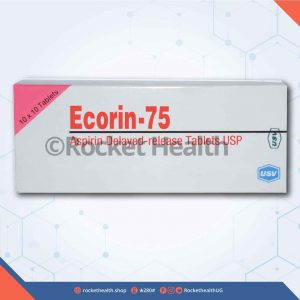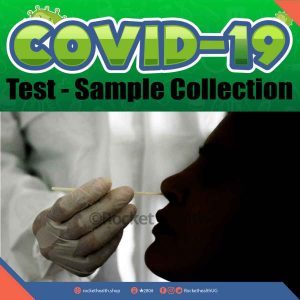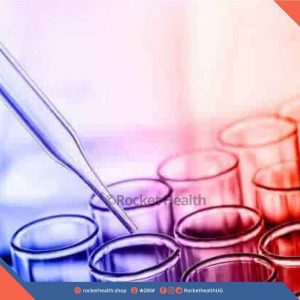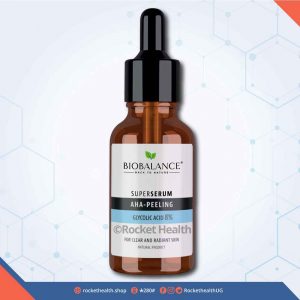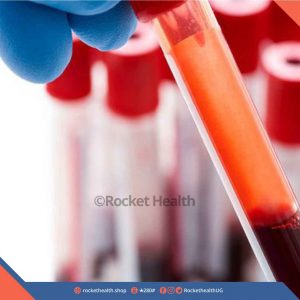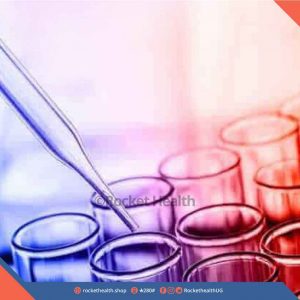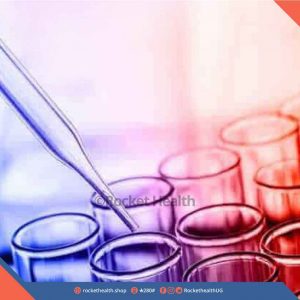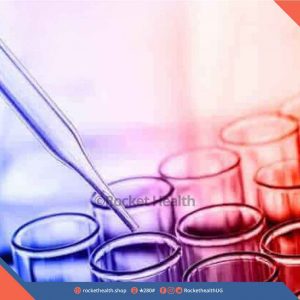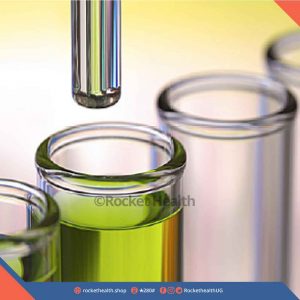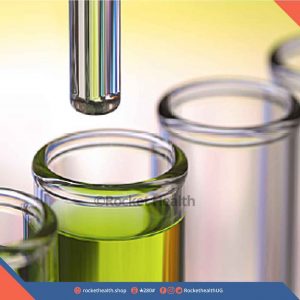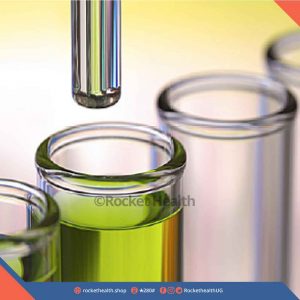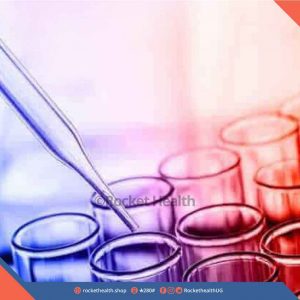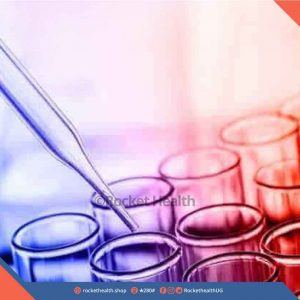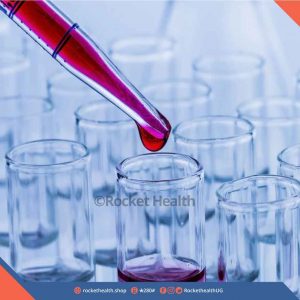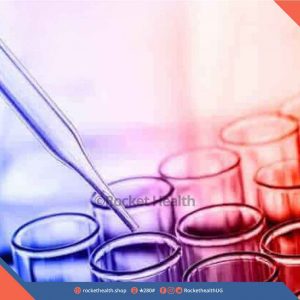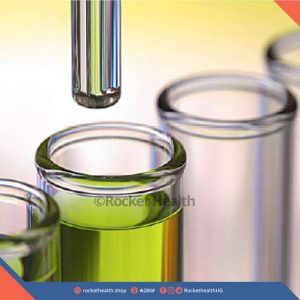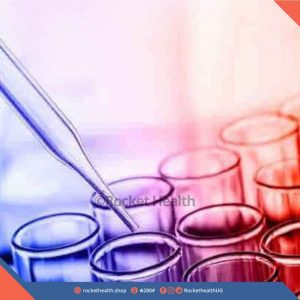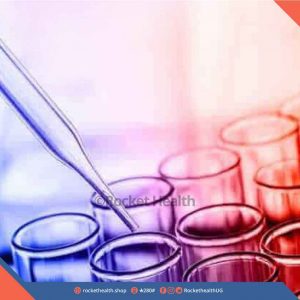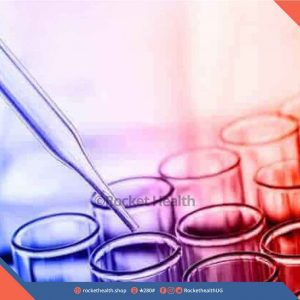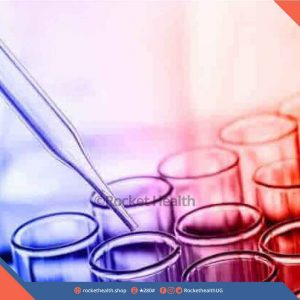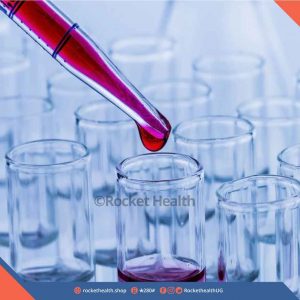-
2 × 700UGX
-
5 × 1,100UGX
-
1 × 100UGX
-
1 × 2,000UGX
-
1 × 60,000UGX
-
1 × 50,000UGX
-
1 × 2,200UGX
-
1 × 32,000UGX
-
1 × 50,000UGX
-
1 × 8,000UGX
-
1 × 150,000UGX
-
1 × 1,800UGX
-
1 × 30,000UGX
-
1 × 75,000UGX
-
1 × 260,000UGX
-
2 × 2,000UGX
-
1 × 200UGX
-
1 × 100,000UGX
-
1 × 30,000UGX
-
1 × 60,000UGX
-
2 × 15,000UGX
-
1 × 50,000UGX
-
1 × 55,000UGX
-
1 × 190,000UGX
Rocket Health Laboratory, an online laboratory in Kampala, provides affordable, efficient, and convenient laboratory services whereby professional technicians collect samples from the comfort of one’s home or workplace, and accurate results are sent via email. Rocket Health Laboratory is an excellent choice for those looking for a reliable laboratory.
- Quantity of product Amlodipine 10mg Tablet AMLODAC10 10's can not be less than 10
- Quantity of product Losartan/Hydrochlorothiazide Tablet Losacar H 10's can not be less than 10
- Quantity of product Telvas H 80/12.5 Tablets 10's can not be less than 10
- Quantity of product Losartan 50mg & Hydrochlorothiazide 12.5mg Co-Losar Denk can not be less than 14
- Quantity of product Nebivolol+HCT 5/12.5mg Nebilet Plus Tablets 10's can not be less than 10
- Quantity of product Nebivolol/ Hydrochlorothiazide Nebilong H Tablet 10's can not be less than 10
- Quantity of product Amlozaar Tablet 10's can not be less than 10
- Quantity of product Aspirin 75mg Tablet Ecorin 10's can not be less than 10
-
Factor V (Proaccelerin or labile factor)
This is a blood test that checks for a deficiency in a protein known as factor V that helps in blood clotting.
Blood.
No specific patient preparation protocol required. Inform the doctor if you are on any medications, have any allergies or underlying medical conditions before this test.
Coagulation factors are proteins circulating in the blood that are essential for proper blood clot formation. Coagulation factor tests measure the function of or sometimes the amount of these proteins in the blood. There are nine coagulation factor proteins that can be measured clinically Factor I, II, V, VII, IX, X, XI, XIII. These factors are referred to by a name or Roman numeral or both in some cases. When one or more of these factors are produced in too small a quantity, or are not functioning correctly, they can cause excessive bleeding.
200,000UGXFactor V (Proaccelerin or labile factor)
200,000UGX -
Factor IX
This test is part of a group of screening tests to find out which type of bleeding disorder you may have.
Blood.
No specific patient preparation protocol required. Inform the doctor if you are on any medications, have any allergies or underlying medical conditions before this test.
Coagulation factors are proteins circulating in the blood that are essential for proper blood clot formation. Coagulation factor tests measure the function of or sometimes the amount of these proteins in the blood. There are nine coagulation factor proteins that can be measured clinically Factor I, II, V, VII, IX, X, XI, XIII. These factors are referred to by a name or Roman numeral or both in some cases. When one or more of these factors are produced in too small a quantity, or are not functioning correctly, they can cause excessive bleeding.
200,000UGXFactor IX
200,000UGX -
Factor II (Prothrombin)
This test measures how much of a protein called factor II is in your blood. It can help find out whether you have a bleeding or blood clotting disorder.
Blood.
No specific patient preparation protocol required. Inform the doctor if you are on any medications, have any allergies or underlying medical conditions before this test.
Coagulation factors are proteins circulating in the blood that are essential for proper blood clot formation. Coagulation factor tests measure the function of or sometimes the amount of these proteins in the blood. There are nine coagulation factor proteins that can be measured clinically Factor I, II, V, VII, IX, X, XI, XIII. These factors are referred to by a name or Roman numeral or both in some cases. When one or more of these factors are produced in too small a quantity, or are not functioning correctly, they can cause excessive bleeding.
200,000UGXFactor II (Prothrombin)
200,000UGX -
Follicle Stimulating Hormone
This blood test measures level of Follicle Stimulating Hormone(FSH) in the blood which is responsible for fertility.
Blood.
No test preparation is needed, but early morning samples are preferred and a woman’s sample should be collected at specific times during her menstrual cycle.
FSH is made by the pituitary gland located in the brain, In women of childbearing age, FSH stimulates the growth and maturation of eggs (follicles) in the ovaries during the follicular phase of the menstrual cycle. In men, FSH stimulates the testicles to produce mature sperm and also promotes the production of androgen binding proteins. Disorders affecting the hypothalamus, pituitary, and/or the ovaries or testicles can cause the production of too much or too little FSH, resulting in a variety of conditions such as infertility, abnormal menstrual cycles, or early (precocious) or delayed puberty.
50,000UGXFollicle Stimulating Hormone
50,000UGX -
Estradiol
An estradiol test is a simple blood test to measure the amount of estradiol hormone during assessment of fertility or treatment.
Blood.
None, but early morning samples are preferred and the timing of a woman’s sample will be correlated with her menstrual cycle or, if pregnant, with the gestational age of the baby.
Estradiol (E2) is primarily produced in the ovaries under stimulation of FSH and LH in pre-menopausal women and in the testicles in men. E2 is converted from E1 in post-menopausal women. It is the most potent estrogen and the one that is present in the highest concentration in non-pregnant, pre-menopausal women. E2 levels vary depending on a woman’s age and reproductive status. They are a good marker of ovarian function. Increased or decreased levels of estrogens are seen in many metabolic conditions i.e. Hyperthyroidism, Cirrhosis, Turner syndrome, hypopituitarism, female hypogonadism, Polycystic ovary syndrome.
50,000UGXEstradiol
50,000UGX -
Direct bilirubin
This test is used to check for presence of liver disease or damage.
Blood.
You may need to fast (nothing but water) for four hours before the test. Inform the doctor if you are on any medications, have any allergies or underlying medical conditions before this test.
Bilirubin is an orange-yellow pigment, a waste product primarily produced by the normal breakdown of heme a component of hemoglobin, which is found in red blood cells (RBCs). A small amount (approximately 250 to 350 milligrams) of bilirubin is produced daily in a normal, healthy adult.If the bilirubin level increases in the blood, a person may appear jaundiced, with a yellowing of the skin and/or whites of the eyes. The pattern of bilirubin test results can give the health practitioner information regarding the condition that may be present ie with liver diseases such as cirrhosis or inherited problems.
20,000UGXDirect bilirubin
20,000UGX -
D-Dimer
D-dimer tests are used to help rule out the presence of an inappropriate blood clot (thrombus).
Blood.
No specific patient preparation protocol required. Inform the doctor if you are on any medications, have any allergies or underlying medical conditions before this test
D-dimer is one of the protein fragments produced when a blood clot gets dissolved in the body. It is normally undetectable or detectable at a very low level unless the body is forming and breaking down blood clots, then its level in the blood can significantly rise. While clots most commonly form in the veins of the legs, they may also form in other areas as well. Measurements of D-dimer can be used to help detect clots in any of these sites. For example, clots in coronary arteries are the cause of myocardial infarction (heart attacks).
75,000UGXD-Dimer
75,000UGX -
Creatinine Kinase MB
This is a test to check for heart muscle damage or detect a recent heart attack.
Blood.
No specific patient preparation protocol required. Inform the doctor if you are on any medications, have any allergies or underlying medical conditions before this test
CK-MB is one of three forms (isoenzymes) of the enzyme creatine kinase (CK). CK is released from muscle cells and is detectable in the blood whenever there is muscle damage. The small amount of CK that is normally in the blood is primarily CK-MM. CK-BB almost never gets into the blood, and CK-MB will typically only be present in significant amounts when the heart is damaged. A CK test measures the total level but does not distinguish between the three isoenzymes. When there is an increased amount of CK present in the blood, the CK-MB test can be used to determine whether it is due to heart damage or is more likely to be related to skeletal muscle injury.
40,000UGXCreatinine Kinase MB
40,000UGX -
Creatinine
A carcinoembryonic antigen (CEA) test is a blood test used to help diagnose and manage certain types of cancers during treatment.
Blood.
You may be instructed to fast overnight or refrain from eating cooked meat; some studies have shown that eating cooked meat prior to testing can temporarily increase the level of creatinine. If a 24-hour urine sample is being collected, it is important to save all the urine produced during that time period.
Both creatine and creatinine are produced by the body at a relatively constant rate. Since almost all creatinine is filtered from the blood by the kidneys and released into the urine, blood levels are usually a good indicator of how well the kidneys are working. The amount of creatinine you produce depends on your body size and your muscle mass. For this reason, creatinine levels are usually slightly higher in men than in women and children. Results from a blood creatinine test may be used in combination with results from other tests, such as a 24-hour urine creatinine test, to calculate values that are used to evaluate kidney function.
20,000UGXCreatinine
20,000UGX -
Carcino Embryonic Antigen (CEA)
A carcinoembryonic antigen (CEA) test is a blood test used to help diagnose and manage certain types of cancers during treatment.
Blood.
No specific patient preparation protocol required. Inform the doctor if you are on any medications, have any allergies or underlying medical conditions before this test
CEA may be produced by the cancer cells. CEA may then be detected in blood, but it will not indicate which kind of cancer is present. CEA is often used to monitor patients with cancers of the gastrointestinal (GI) tract such as bowel (colorectal) cancer. It may be raised in other cancers, such as ovarian and breast cancers, but can also be raised in benign conditions such as liver disease and inflammatory bowel disease (Crohns disease or ulcerative colitis).
90,000UGXCarcino Embryonic Antigen (CEA)
90,000UGX -
Calcium
Serum calcium is a blood test used to measure the amount of calcium in the blood to screen or monitor bone diseases or calcium regulation disorders.
Blood.
You may be instructed to stop taking certain medications, such as lithium, antacids, diuretics, and vitamin D supplements, among others, to ensure the most accurate test results.
It is essential for cell signaling and the proper functioning of muscles, nerves, and the heart. Calcium is needed for blood clotting and is crucial for the formation, density, and maintenance of bones and teeth. This test measures the amount of calcium in the blood or urine, which reflects the amount of total and ionized calcium in the body.
20,000UGXCalcium
20,000UGX -
CA-125 (Ovarian cancer)
A Cancer Antigen 125 test measures the amount of the protein cancer antigen 125 in your blood helping to monitor ovarian cancer during and after treatment.
Blood.
No specific patient preparation protocol required. Inform the doctor if you are on any medications, have any allergies or underlying medical conditions before this test.
CA 125 is a protein often found on the surface of ovarian cancer cells and in some normal tissues. It is used as a marker for ovarian cancer. However, CA 125 levels may also be high in other types of non-cancerous conditions, including menstruation, pregnancy, and pelvic inflammatory disease.
75,000UGXCA-125 (Ovarian cancer)
75,000UGX -
CA 19-9 (Pancreatic Cancer)
This test measures the amount of a protein called cancer antigen 19-9 (CA 19-9) in the blood helping to monitor the progress of pancreatic cancer treatment.
Blood.
No specific patient preparation protocol required. Inform the doctor if you are on any medications, have any allergies or underlying medical conditions before this test.
Cancer antigen 19-9 (CA 19-9) is a protein that exists on the surface of certain cancer cells. CA 19-9 does not cause cancer; rather, it is shed by the tumor cells and can be detected by laboratory tests in blood and sometimes other body fluids. CA 19-9 is elevated in about 70% to 95% of people with advanced pancreatic cancer. However, CA 19-9 may also be elevated in other cancers, conditions, and diseases such as: gallbladder and bile duct cancers (cholangiocarcinoma), colorectal cancer, gastric cancers, ovarian cancer, lung cancer, liver cancer, bile duct obstruction (e.g., gallstones), pancreatitis, cystic fibrosis, thyroid disease, and liver disease. Small amounts of CA 19-9 are present in the blood of healthy people. Since CA 19-9 is not specific for pancreatic cancer, it cannot be used by itself for screening or diagnosis.
75,000UGXCA 19-9 (Pancreatic Cancer)
75,000UGX -
CA 15-3 (Breast Cancer)
This test measures Cancer antigen 15-3 in the blood. (CA 15-3) is a protein that is produced by normal breast cells but in many people with cancerous breast tumors, there is an increased production.
Blood.
No specific patient preparation protocol required. Inform the doctor if you are on any medications, have any allergies or underlying medical conditions before this test.
Cancer antigen 15-3 (CA 15-3) is a normal product of breast cells. Concentrations of CA 15-3 in the blood are often increased in breast cancer. CA 15-3 does not cause cancer; rather, it is a protein that is shed by the tumour cells, making it useful as a marker to follow the course of the cancer. CA 15-3 is rarely elevated in women with localised breast cancer but is increased in about 75% of those with breast cancer that has metastasised (spread to other organs). CA 15-3 also may be elevated in healthy people and in individuals with other cancers, or diseases, such as bowel cancer, lung cancer, cirrhosis, hepatitis, and benign breast disease.
75,000UGXCA 15-3 (Breast Cancer)
75,000UGX -
Anti Streptolysin O Titre
This is a blood test that checks for effects of a recent streptococcus bacteria infection that may cause Rheumatic fever or kidney disease.
Blood.
You may be instructed not to eat six hours before the test. Inform the doctor if you are on any medications, have any allergies or underlying medical conditions before this test.
Antistreptolysin O (ASO) is an antibody targeted against streptolysin O, a toxic enzyme produced by group A Streptococcus bacteria. Group A Streptococcus (Streptococcus pyogenes) is the bacterium responsible for causing strep throat and a variety of other infections, including skin infections (pyoderma, impetigo, cellulitis). In most cases, strep infections are identified and treated with antibiotics, and the infections resolve. When a strep infection does not cause identifiable symptoms and goes untreated, or is treated ineffectively, complications namely rheumatic fever and a type of kidney disease (glomerulonephritis), can sometimes develop, especially in young children.
30,000UGXAnti Streptolysin O Titre
30,000UGX -
Anti Nuclear Antibody (ANA)
This test looks for antibodies in your blood that may indicate the presence of an autoimmune condition which causes your immune system to attack your own body cells, tissues, and organs.
Blood.
No specific patient preparation protocol required. Inform the doctor if you are on any medications, have any allergies or underlying medical conditions before your test
Antinuclear antibodies (ANA) are a group of autoantibodies produced by a person’s immune system when it fails to adequately distinguish between “self” and “nonself.” ANA react with components of the body’s own healthy cells and cause signs and symptoms such as tissue and organ inflammation, joint and muscle pain, and fatigue.
70,000UGXAnti Nuclear Antibody (ANA)
70,000UGX


